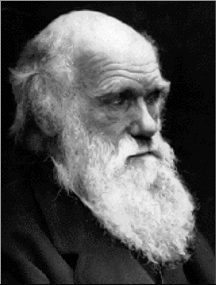Human civilization is in fact barely 1000 years old?!
Learn how and why Ancient Rome, Greece and Egypt were invented and crafted during Renaissance. Discover the Old Testament as a veiled rendition of events of Middle Ages written centuries after the New Testament. Perceive the Crusaders as contemporaries of The Crucifixion punishing the tormentors of the Messiah. What if Jesus Christ was born in 1053 and crucified in 1086 AD?
Sounds unbelievable? Not after you've read "History: Fiction or Science?" by Anatoly Fomenko, leading mathematician of our time. He follows in steps of Sir Isaac Newton, finds clear evidence of falsification of History by clergy and humanists. Armed with computers, astronomy and statistics he proves the history of humankind to be both dramatically different and drastically shorter than generally presumed.
The evolutionary Revolution
"I have called this principle, by which
each slight variation, if useful, is preserved,
by the term Natural Selection."
Charles Darwin from "The Origin of Species"
Charles Darwin was born on February 12, 1809 in Shrewsbury, England. He was the British naturalist who became famous for his theories of evolution and natural selection. Like several scientists before him, Darwin believed all the life on earth evolved (developed gradually) over millions of years from a few common ancestors.
 From 1831 to 1836 Darwin served as naturalist aboard the H.M.S. Beagle on a British science expedition around the world. In South America Darwin found fossils of extinct animals that were similar to modern species. On the Galapagos Islands in the Pacific Ocean he noticed many variations among plants and animals of the same general type as those in South America. The expedition visited places around the world, and Darwin studied plants and animals everywhere he went, collecting specimens for further study.
From 1831 to 1836 Darwin served as naturalist aboard the H.M.S. Beagle on a British science expedition around the world. In South America Darwin found fossils of extinct animals that were similar to modern species. On the Galapagos Islands in the Pacific Ocean he noticed many variations among plants and animals of the same general type as those in South America. The expedition visited places around the world, and Darwin studied plants and animals everywhere he went, collecting specimens for further study.
Upon his return to London Darwin conducted thorough research of his notes and specimens. Out of this study grew several related theories: one, evolution did occur; two, evolutionary change was gradual, requiring thousands to millions of years; three, the primary mechanism for evolution was a process called natural selection; and four, the millions of species alive today arose from a single original life form through a branching process called "specialization."
Darwin's theory of evolutionary selection holds that variation within species occurs randomly and that the survival or extinction of each organism is determined by that organism's ability to adapt to its environment. He set these theories forth in his book called, "On the Origin of Species by Means of Natural Selection, or the Preservation of Favoured Races in the Struggle for Life" (1859) or "The Origin of Species" for short. After publication of Origin of Species, Darwin continued to write on botany, geology, and zoology until his death in 1882. He is buried in Westminster Abbey.
Darwin's work had a tremendous impact on religious thought. Many people strongly opposed the idea of evolution because it conflicted with their religious convictions. Darwin avoided talking about the theological and sociological aspects of his work, but other writers used his theories to support their own theories about society. Darwin was a reserved, thorough, hard working scholar who concerned himself with the feelings and emotions not only of his family, but friends and peers as well.
It has been supposed that Darwin renounced evolution and converted to Christianity on his deathbed. Shortly after his death, a Lady Hope claimed she visited Darwin at his deathbed, and witnessed the renunciation. Her story was printed in a Boston newspaper and subsequently spread. Lady Hope's story was refuted by Darwin's daughter Henrietta who stated, "I was present at his deathbed ... He never recanted any of his scientific views, either then or earlier."








